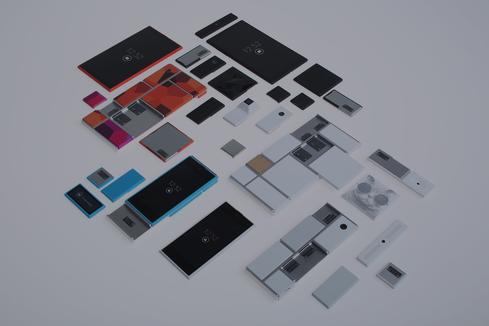Wearables, Drones Scare Americans
Google has some public relations to do. People remain wary of tech breakthroughs including care-giving robots and drones, Pew research finds.


Google's 10 Big Bets On The Future
Google's 10 Big Bets On The Future (Click image for larger view and slideshow.)
Most Americans think technology will improve society, but they are concerned about specific avenues of research. A survey conducted by the nonprofit Pew Research Center finds doubts about expected technological change, mixed in with the optimism.
For Google, which has struggled to make its Glass computerized eyewear socially acceptable, for Amazon, which has floated the possibility of delivering packages by drone, and for other companies banking on the future, the survey's findings suggest that research budgets should be matched by investments in public relations. The future may be bright but people are more comfortable with the present.
Overall, the 1,001 US adults surveyed by Pew researchers expect technology will make the world a better place. Among the respondents, 59% expressed optimism that coming technological changes will make life better, while 30% anticipated a future where people are worse off.
Eight in ten think society will benefit from lab-grown organs in the next 50 years while half of those surveyed foresee computers that will be able create art that's indistinguishable from what a human can make.
[For a glance at the past, read Web Turns 25: 10 Graphics To See.]
At the same time, a surprisingly large percentage of people anticipate unrealistic scenarios. For example, 39% think scientists will be able to teleport objects within 50 years. That number should be much closer to zero.
Respondents exhibited worry about technologies that have attracted significant recent investment in Silicon Valley. Fifty three percent of Americans believe society will suffer if "most people wear implants or other devices that constantly show them information about the world around them." About 37% disagree and see wearable and implantable devices as a change for the better. Asked whether they would be interested in riding in driverless cars, only 48% would do so given the option.
As far as personal and commercial drones are concerned, 63% of respondents think we'll be worse off if the FAA allows them to operate in commercial airspace. A slightly higher percentage of people, 65%, see the prospect of robot caregivers for the elderly as undesirable. And 66% of those surveyed dislike the idea of parents altering the DNA of their children to make them healthier, smarter, or more athletic.
About 72% rejected the idea of a brain implant to improve mental capacity and 78% expressed disinterest in eating lab-grown meat.
The study also underscores the need for technology companies to pay more attention to income inequality. That's an issue Google has confronted in San Francisco, where the success of technology companies is now often blamed for the shortage of affordable housing and where those outside the industry feel left behind.
Among those surveyed, the likelihood of concern about the future rose as income declined. Thirty-eight percent of respondents with an income of $30,000 or less expected technology would make people's lives worse; for those making $75,000 or more, only 22% believed technology will have a negative impact on society.
Join Enterprise Connect for an intensive day-long series of sessions in a free four-city road show focused on helping you design strategies for successful adoption and implementation of Microsoft's Lync. During this free program, we will help you evaluate Lync as a voice solution, address the challenges of integrating Lync into your existing UC architecture, and analyze total cost of ownership. Join your peers and leading vendor companies making Lync adoption possible in San Francisco, Chicago, Boston, and New York. Register for the Enterprise Connect Lync Tour today.
About the Author
You May Also Like






